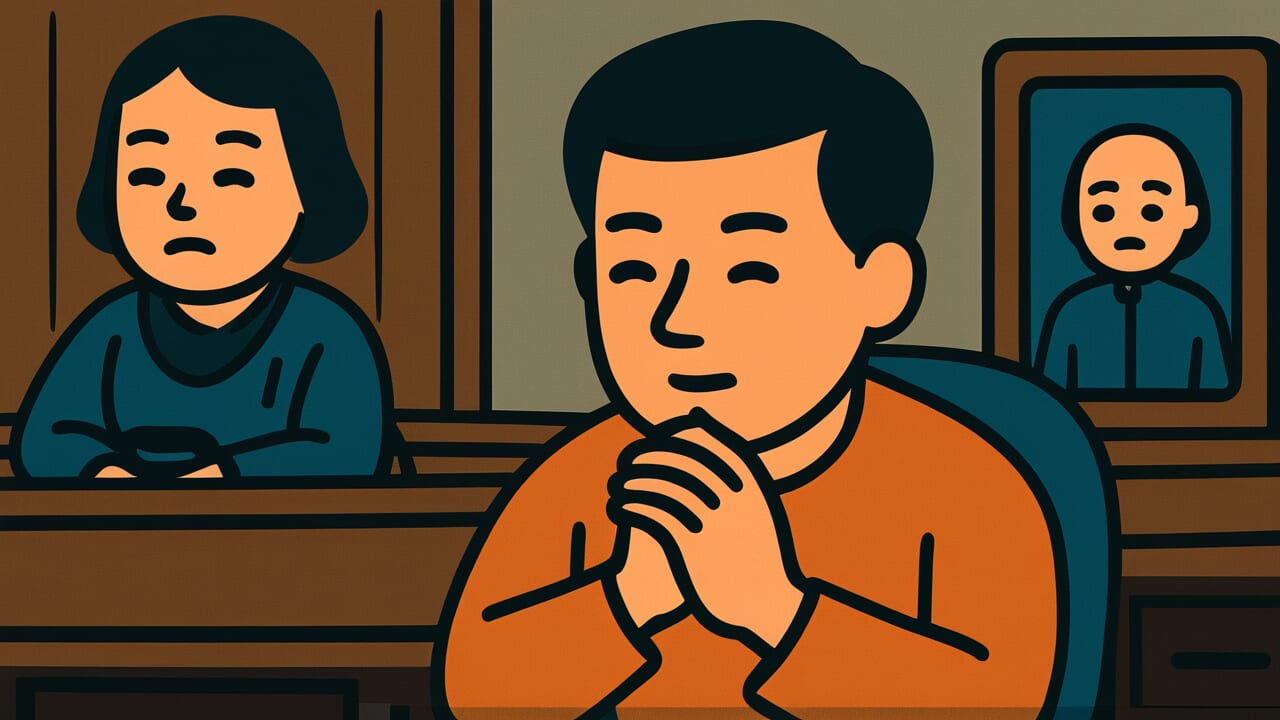How to Read “Pray rather than worry”
Anjiru yori nenjiro
Meaning of “Pray rather than worry”
“Pray rather than worry” is a proverb that encourages people to take action with determination rather than dwelling on anxieties.
It teaches the importance of moving forward with resolve instead of staying stuck in worry and fear.
This proverb is used when someone is paralyzed by worry and cannot act. It applies to students too anxious about exams to study effectively.
It helps people afraid of failure who cannot take on challenges. It encourages those worried about outcomes who cannot move forward.
The phrase tells them: “Overthinking won’t help. Focus on what you need to do.” It gives people a gentle push forward.
Today, people often misunderstand “nenjiru” as simply praying to gods. But originally it meant to set your mind and devote yourself completely to something.
In other words, this is not about relying on divine help. It’s an active message to concentrate on your own actions.
If you have time to worry, use that time for actual action instead. This is a practical and positive teaching.
Origin and Etymology
No clear written records explain the origin of this proverb. However, we can make interesting observations from how the words are structured.
The contrast between “anjiru” and “nenjiru” forms the heart of this proverb. “Anjiru” means to worry or be anxious about something.
“Nenjiru” is often understood today as praying. But originally it meant to concentrate your mind on one thing, to devote yourself completely.
The Buddhist term “nen” refers to focusing the mind on an object as a spiritual practice. This proverb likely draws from that influence.
So this proverb teaches us to take action with determination rather than spinning in circles with worry.
It emphasizes the importance of committing yourself wholeheartedly to action instead of standing still in anxiety.
The saying probably spread among common people during the Edo period. People back then experienced daily how useless worry was and how valuable action could be.
Whether in farming or business, worrying about weather or market prices accomplished nothing. You could only focus on what you could actually do.
This realistic wisdom from everyday life became condensed into these words.
Usage Examples
- If you can’t sleep worrying about entrance exams, remember “Pray rather than worry” and focus on the studying you can do right now
- I’m anxious about whether my new job will go well, but I’ll jump in with the spirit of “Pray rather than worry”
Universal Wisdom
“Pray rather than worry” has been passed down through generations because it sees both human weakness and human strength clearly.
We humans have the ability to imagine the future. But this ability is a double-edged sword.
While we can envision possibilities, we also worry about failures and misfortunes that haven’t happened yet. This worry can paralyze us completely.
We simulate bad outcomes over and over in our minds. Anxiety breeds more anxiety.
Before we know it, we’ve lost the courage to act. This is a timeless human tendency.
Our ancestors understood the true nature of worry. They knew that most worries are imaginary fears that never actually happen.
They also knew that the time spent worrying itself distances us from solving problems.
That’s why they chose the word “nenjiru.” Set your mind and devote yourself to what’s in front of you.
This concentration is the best way to eliminate anxiety. When you’re taking action, you’re freed from worry.
When your hands are moving and your feet are stepping forward, you have no room left for worry.
This proverb fully understands the trap of human thinking. And it shows us the way out of that trap.
When AI Hears This
The brain constantly predicts the next moment. It works to minimize the gap between predictions and actual sensory input, called prediction error.
From this perspective, worrying and focusing have opposite effects on the brain.
When you worry, your brain generates multiple negative predictions one after another. “Bad outcome A,” “worse outcome B,” “worst outcome C.”
This spreads the variance of predictions and increases uncertainty. In predictive processing theory, higher uncertainty means larger expected prediction errors.
The brain consumes more energy to maintain an alert state. This is experienced as anxiety and tension.
On the other hand, “nenjiru” means narrowing down to a single desirable prediction. For example, repeatedly predicting “this will go well.”
The brain starts treating that prediction as a high-probability state. Then active inference mechanisms kick in.
This is how the brain adjusts actions to make predictions come true. A brain holding the prediction “this will go well” unconsciously tends to select action patterns that realize that prediction.
Research shows that people with positive predictions actually have lower stress hormones. They use cognitive resources more efficiently.
Predictions guide actions, and actions realize predictions. This self-fulfilling loop is the neuroscientific reality of focused intention.
Lessons for Today
Modern society is an age of information overload. We can research every option, compare them, and examine all the risks.
But doesn’t this convenience sometimes make us stand still?
“Pray rather than worry” teaches us not to seek perfection too much. If you try to eliminate all risks before moving, you’ll never move.
Anxiety never completely disappears. So once you’ve prepared to some degree, learn as you go.
That courage becomes the driving force that moves your life forward.
If you’re stuck worrying about something right now, ask yourself this question. Does this worry really need to be thought about now?
Or is it becoming an excuse to avoid taking action?
Set your mind and focus on the step in front of you. That accumulation will carry you a long way before you know it.
Turn your worrying time into moving time. The answers are found in action.



Comments